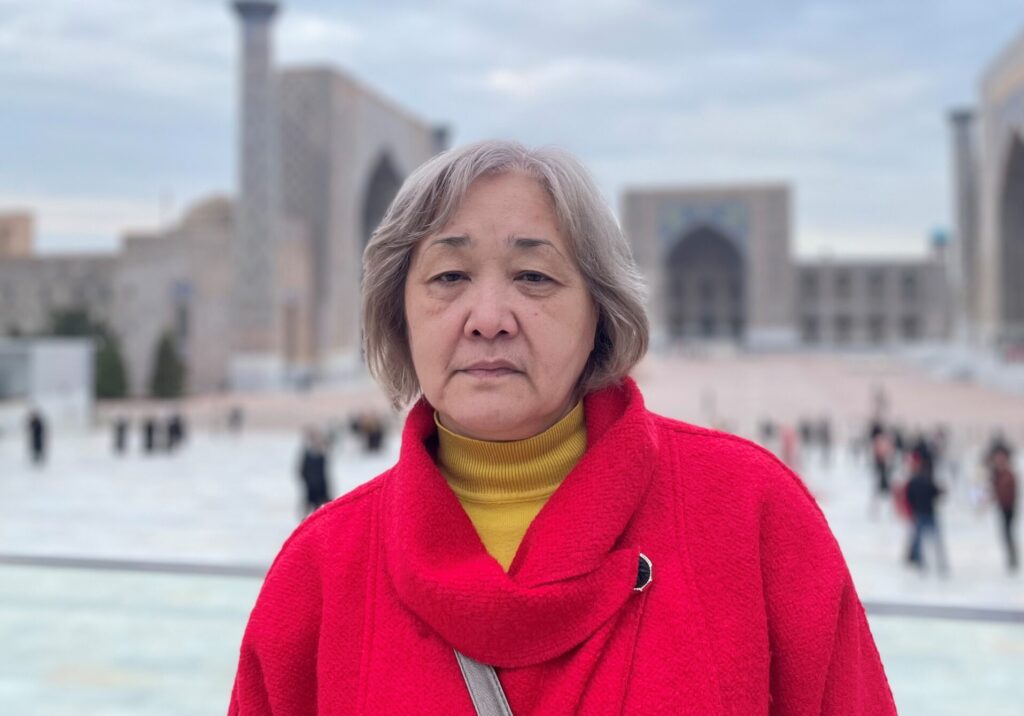
Since August 1, 2024, AFEW International and the NGO Center “Nurbonu”, with funding from the European Union, have been implementing the initiative Empowering Voices for Inclusive Development: Strengthening Civil Society Organizations (CSOs) in Samarkand, Namangan, and Tashkent. This program is dedicated to empowering women and youth in Uzbekistan, with a special focus on supporting adolescents living with HIV.
We spoke with Olga Kektysheva, Director of our partner organization “Nurbonu,” to explore the regional significance of this project and its transformative impact on young people managing HIV.

Tailored support for adolescents
The program’s core objective is to enhance the quality of life and well-being of adolescents living with HIV by addressing key challenges such as treatment adherence, family communication, and psychological resilience.
A critical component of our programme is equipping parents and caregivers with the tools to disclose an HIV diagnosis in a manner that is both timely and age-appropriate. Experts emphasize that disclosure between the ages of 7 and 12 can foster acceptance and optimism. Delayed disclosure, however, may result in distrust, emotional distress, or non-adherence to antiretroviral (ARV) therapy.
Adolescents naturally seek answers, often turning to unverified sources or misinterpreting complex medical information. Learning about their diagnosis through these channels can erode trust in caregivers or medical professionals. Through tailored interventions, the project empowers families to approach these sensitive conversations constructively, ensuring adolescents develop a supportive understanding of their health.
Our specialists offer psychological counseling and practical guidance, building trust among adolescents, parents, and healthcare providers. This support is crucial in fostering sustained treatment adherence and promoting healthy relationships.
Addressing stigma and self-stigma
A broader goal of our initiative is to combat stigma and discrimination against people living with HIV (PLHIV), particularly among youth. By raising awareness, educating communities, and amplifying the voices of young PLHIV, we seek to dismantle harmful stereotypes and foster an inclusive society where all individuals feel empowered to participate fully.
Challenges and solutions
The project has faced many challenges, including:
- Disclosure delays: Many parents hesitate to inform their children about an HIV diagnosis due to fear or uncertainty.
- Treatment adherence: Adolescents may struggle with consistent ARV therapy due to psychological or social pressures.
- Career pathways: Supporting young PLHIV in identifying educational and professional opportunities.
- Early marriages: Addressing cultural practices that may hinder young people’s health and autonomy.
- Stigma and self-stigma: Helping adolescents build self-confidence and counteract societal biases.
- Social integration: Facilitating acceptance and adaptation for PLHIV within their communities.
Collaboration with institutions such as the Samarkand Regional AIDS Center has strengthened the project’s ability to address these multifaceted issues.
Future directions
In the coming months, our project will focus on expanding its outreach by delivering educational lectures at universities, aiming to enhance awareness of HIV prevention among students and give them right information about HIV transmission in order to reduce stigma among students and teachers.
Simultaneously, we will continue providing tailored counselling to adolescents living with HIV and their families, addressing challenges related to treatment adherence, emotional well-being, and social integration. Alongside these efforts, the initiative will further its mission to promote inclusivity by developing programs that encourage societal acceptance and the active participation of people living with HIV in all aspects of community life.
By combining targeted support for adolescents and families with community education efforts, the initiative aims to sustain meaningful change in the lives of young people living with HIV in Uzbekistan.
PS. This project contributes directly to the UN Sustainable Development Goals (SDGs), particularly SDG 16, which focuses on building inclusive societies and fostering effective, accountable, and inclusive institutions. By amplifying the voices of vulnerable groups and empowering them to participate in decision-making processes, the project is creating a foundation for long-term societal change.
This document has been produced with the financial assistance of the European Union. The contents are the sole responsibility of Nurbonu and AFEW International and can under no circumstances be regarded as reflecting the position of the European Union.



